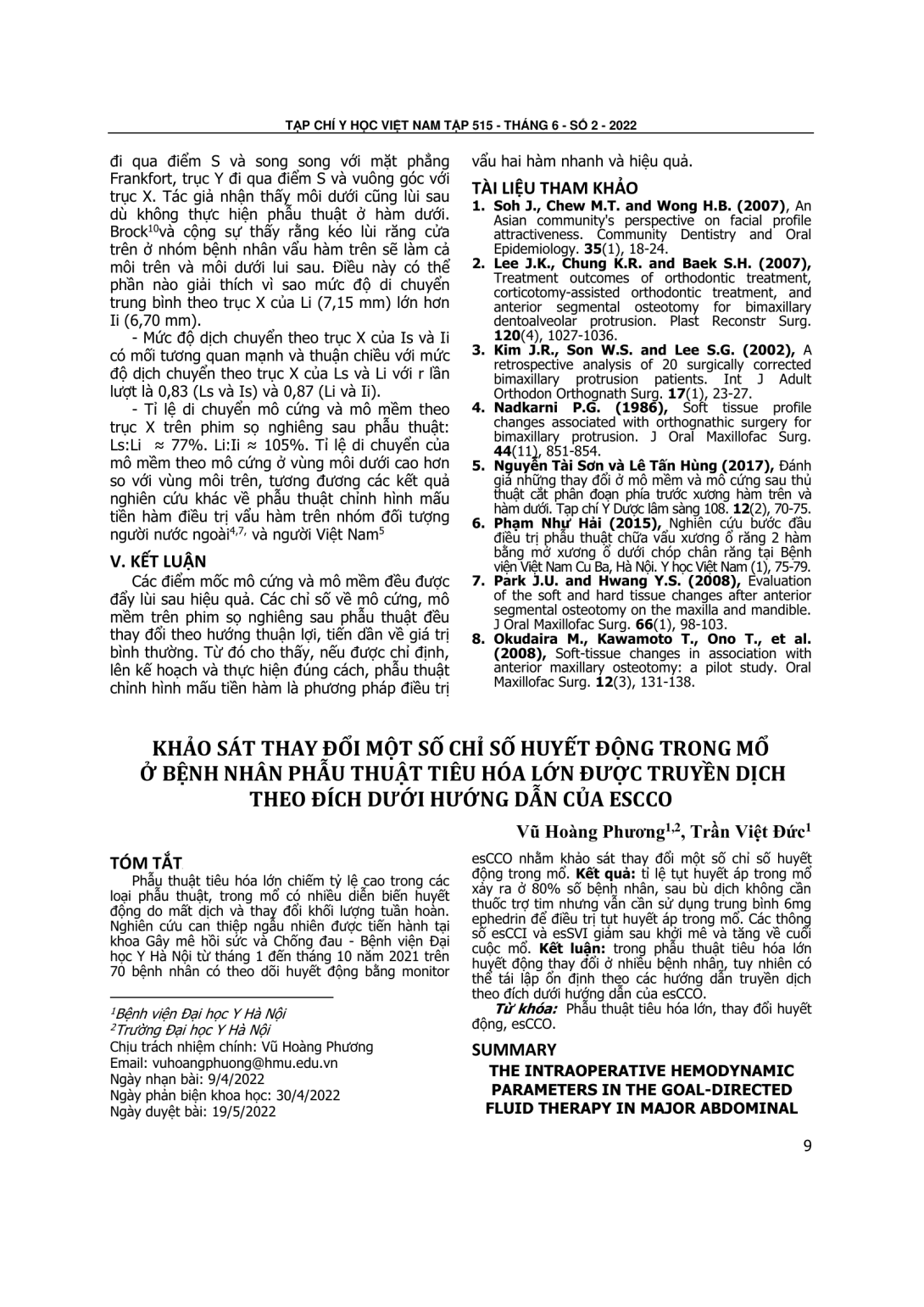
Phẫu thuật tiêu hóa lớn chiếm tỷ lệ cao trong các loại phẫu thuật, trong mổ có nhiều diễn biến huyết động do mất dịch và thay đổi khối lượng tuần hoàn. Nghiên cứu can thiệp ngẫu nhiên được tiến hành tại khoa Gây mê hồi sức và Chống đau - Bệnh viện Đại học Y Hà Nội từ tháng 1 đến tháng 10 năm 2021 trên 70 bệnh nhân có theo dõi huyết động bằng monitor esCCO nhằm khảo sát thay đổi một số chỉ số huyết động trong mổ. Kết quả: tỉ lệ tụt huyết áp trong mổ xảy ra ở 80% số bệnh nhân, sau bù dịch không cần thuốc trợ tim nhưng vẫn cần sử dụng trung bình 6mg ephedrin để điều trị tụt huyết áp trong mổ. Các thông số esCCI và esSVI giảm sau khởi mê và tăng về cuối cuộc mổ. Kết luận: trong phẫu thuật tiêu hóa lớn huyết động thay đổi ở nhiều bệnh nhân, tuy nhiên có thể tái lập ổn định theo các hướng dẫn truyền dịch theo đích dưới hướng dẫn của esCCO.
Major gastrointestinal surgery accounts for a high percentage of all types of surgery. There are many hemodynamic changes perioperative due to fluid loss and changes in circulating volume. A randomized, controlled study was conducted at the Department of Anesthesiology - Hanoi Medical University Hospital from January to October 2021 on 70 patients with hemodynamic monitoring using an esCCO monitor to investigate changes in blood pressure, change some hemodynamic parameters in surgery. Results: The rate of intraoperative hypotension occurred in 80% of patients. After fluid challenge, no inotropes were required, but an average of 6mg of ephedrine was needed to treat intraoperative hypotension. esCCI and esSVI parameters decreased after induction of anesthesia and increased towards the end of surgery. Conclusions: In major gastrointestinal surgery hemodynamics is variable in many patients, but can be restored stably according to the guidelines of goal-directed fluid therapy under the guidance of esCCO.
- Đăng nhập để gửi ý kiến
